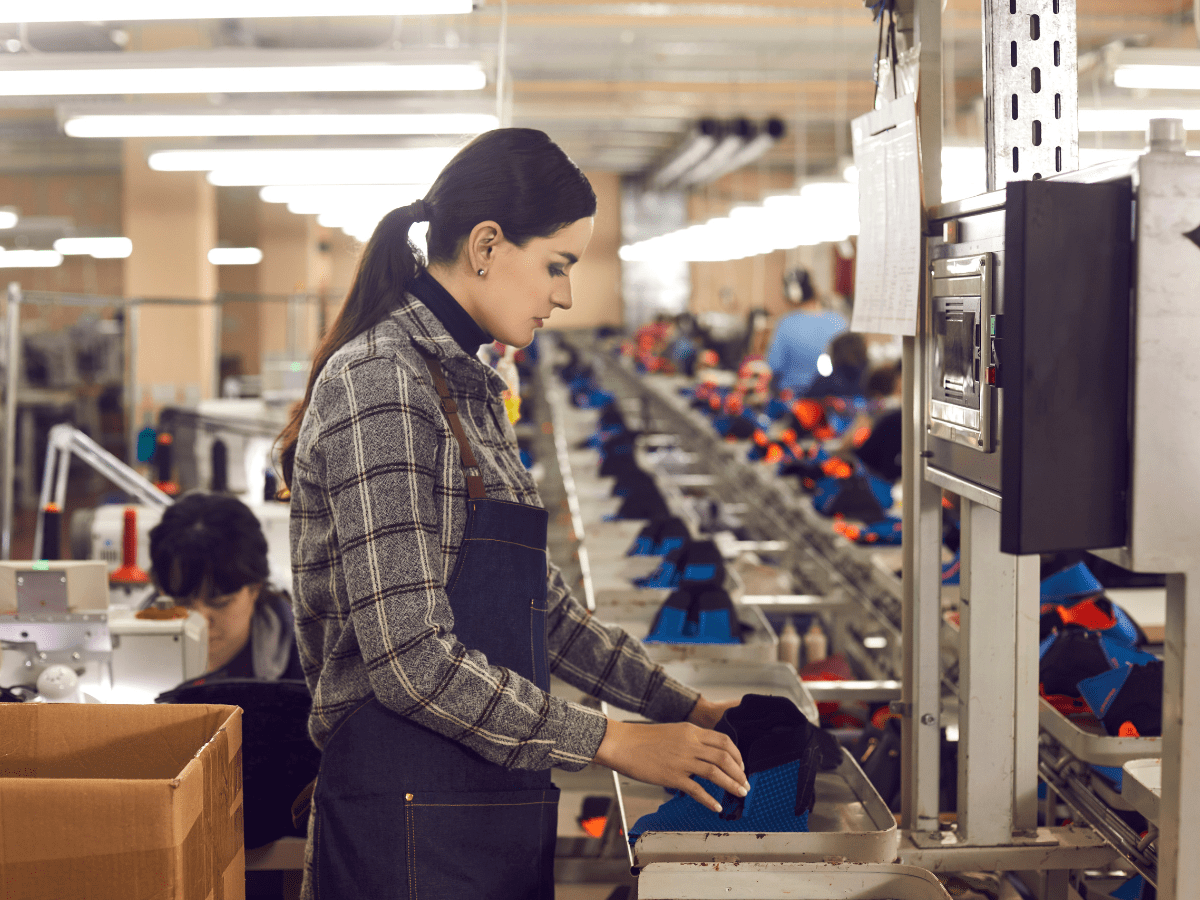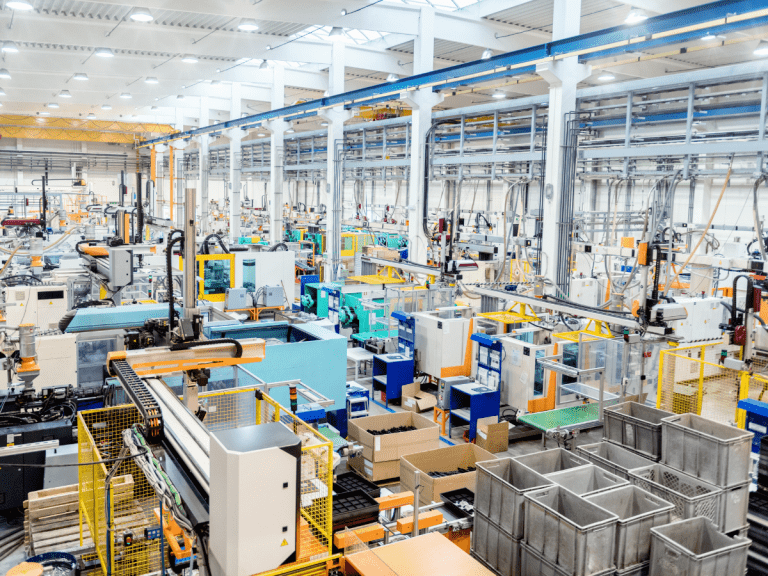Introduction

The production and manufacturing industry is one of the most important industries in the world. It is responsible for producing goods on a large scale and making them available for purchase to consumers. As such, it provides jobs for millions of people around the world.
In this guide, we will look into the different kinds of jobs available in the production and manufacturing industry. We will discuss what skills are required to make a successful career in this field, as well as provide tips on how to get started. We will also examine some of the challenges that may be encountered when working in this industry and how to overcome them.
This guide is designed for those interested in embarking on a career in production and manufacturing. Whether you’re an experienced professional looking to move into this field or just starting out, this guide is sure to provide you with valuable insight into what it takes to be successful in this field.
100% FREE Registration And Job Guarantee To All Aspiring Freshers & Interns Worldwide Wishing To Work On Entry Level Jobs!
Overview Of The Production And Manufacturing Industry

The production and manufacturing industry is a broad category that encompasses a range of jobs, from manual labor to highly specialized, technical roles. It involves the production and assembly of goods, from minerals and other raw materials, to finished products such as cars, furniture, textiles and electronics.
There are a variety of positions that are available in the production and manufacturing industry. This includes skilled tradespeople who use their hands to assemble and repair goods; process workers who are responsible for the safe operation of various machines during the manufacturing process; engineers who oversee the design and development of products; as well as management professionals who oversee day-to-day operations.
For those looking to make a career in production or manufacturing industries, there are many opportunities available. It is important to have an understanding of the various roles involved in the industry before deciding on a path forward. It’s also helpful to gain experience in areas such as safety protocols, problem solving and communication skills which will help you stand out when applying for jobs in this field.
Types of Jobs In The Production And Manufacturing Industry

The production and manufacturing industry offers a wide range of employment opportunities, many of which are technical in nature. Some common roles that are available within the industry include assembly line workers, machine operators, engineers, and quality assurance specialists.
Assembly line workers are responsible for creating products from raw materials by following a set of instructions. Machine operators work with automated equipment to ensure it is properly functioning and producing quality results. Engineers use their technical knowledge to design and develop new products or processes for the organization. Lastly, quality assurance specialists test products to ensure they meet safety regulations and customer expectations.
No matter which job you pursue in production and manufacturing, it’s important to have a basic understanding of the processes involved in producing goods and services. It also helps to have an eye for detail when dealing with complex machinery or delicate instruments. With the right training and experience, you can make a successful career out of this vibrant industry.
Qualifications Required For A Career In The Industry
Production and manufacturing can offer a wealth of career opportunities for those willing to put in the effort. The qualifications necessary to become successful in this field range from knowledge of specific machinery to an understanding of logistics, depending on the job.
Technical Skills
Technical skills are often needed for processing, operation and maintenance roles. Basic machine or equipment operation proficiency is a must, as is knowledge of mathematical principles to make precise calculations quickly. Many companies look for employees who already have the necessary certifications or are willing to acquire them before they start working.
Process Knowledge
Prospective candidates should also have strong understanding of production and manufacturing processes – from design principles to inventory control procedures – in order to guarantee maximum efficiency and quality control. Business acumen is also beneficial, allowing individuals to understand the goals and objectives of their organization as they drive toward success.
Soft Skills
Soft skills such as strong communication abilities and problem solving abilities will aid workers in the production and manufacturing fields greatly, as these roles often require cooperation with team members from a variety of disciplines and responsible decision making on their part. Understanding a company’s culture is also key, as different organizations may have different expectations for their employees’ interactions with customers or other outside parties.
Training Opportunities Available In Production And Manufacturing

If you’re interested in starting a career in production and manufacturing, there are various training opportunities available to help you develop the necessary skills.
On-The-Job Training
Most employers offer hands-on training programs that teach new employees how to use available equipment, take measurements, and follow safety protocols. This type of training can provide employees with the knowledge needed to perform their daily tasks, as well as the confidence required to work in a production or manufacturing facility.
Apprenticeships
Vocational schools and unions sometimes offer apprenticeship programs, which combine classroom learning with real-world experience in a production or manufacturing setting. These programs provide an opportunity to gain hands-on experience while developing technical competency, leading to greater job security and career advancement opportunities.
Technical Schools
Technical schools provide students with specialized training in specific areas of production and manufacturing. Students can choose from several program options that cover topics such as machine operation, robotics, welding, safety engineering and problem solving – all of which can increase job prospects when seeking employment in the field.
Salary Expectations For Jobs In Production And Manufacturing
For those looking to make a career in production and manufacturing, salary expectations could range from entry-level wages to upwards of six figures. Depending on your experience and the nature of your role, there are different jobs you can pursue within the industry.
Entry-Level Jobs
Entry-level positions provide an ideal opportunity for individuals with minimal or no experience to break into production and manufacturing. These roles may involve operating machinery, creating basic components or products, and providing quality assurance. Salaries for these positions typically start around $26,000 per year but can go as high as $45,000 depending on the company.
Mid-Level Jobs
At the mid-level, jobs become increasingly specialized. This includes roles such as quality control technicians whose job is to inspect products before they are shipped out; machine operators who must be familiar with running CNC machines; and assembly line workers who need to have an understanding of product assembly processes. Salaries for these roles range from $40,000 to $75,000 per year depending on the complexity of their tasks.
Senior Positions
The highest levels of employment within production and manufacturing include senior production planners and engineers who must understand complex systems in order to efficiently produce products; supply chain analysts who work with vendors to get materials needed at costs that remain within budget; and operations managers responsible for overseeing overall operations at a factory or plant. Average salaries for these roles range from $65,000 up to six figures depending on the company’s size and structure.
Steps To Take When Pursuing A Career In The Industry
Making a career in production and manufacturing is an exciting prospect, but with so many job types available and the detailed steps required to move ahead, it can seem overwhelming. Here’s what you need to do if you want to pursue a career in this dynamic industry:
Research & Networking
The best way to get started is by doing some research into the different kinds of jobs available and networking with industry professionals. This will give you a better understanding of the roles and skills required for each job type, as well as open doors for potential opportunities.
Technical Training
In addition to research, some job roles require specialized technical training or certifications. For example, if you want to become a certified welder or machinist, you’ll need to take courses and receive instruction from experienced professionals. This step is important so that you can understand the latest technology and best practices related to the position you’re aiming for.
Build Your Resume & Craft Your Portfolio
Having a solid resume with relevant experience is key when it comes to finding work in the production and manufacturing industry. Make sure your resume contains everything that employers are looking for – including work experience, technical skills, certifications and any awards or honors that you’ve earned over the course of your career.
Also consider creating a portfolio that showcases some of your top projects and provides employers with an idea of what kind of work you are capable of producing. This will help set you apart from other applicants and make it easier for employers to see how qualified you are for specific roles.
Conclusion

In conclusion, the production and manufacturing industry is a diverse, dynamic, and exciting field with a number of different job opportunities. With the right training and education, anyone can make a successful career in the industry. Whether you’re looking for a career in engineering, operations, or management, the production and manufacturing industry offers a range of opportunities for job seekers. With the right attitude, work ethic, and drive, you can make a successful career in the industry.
Explore A World Of Entry Level Job Opportunities
100% FREE Registration And Job Guarantee To All Aspiring Freshers & Interns Worldwide Wishing To Work On Entry Level Jobs!



















